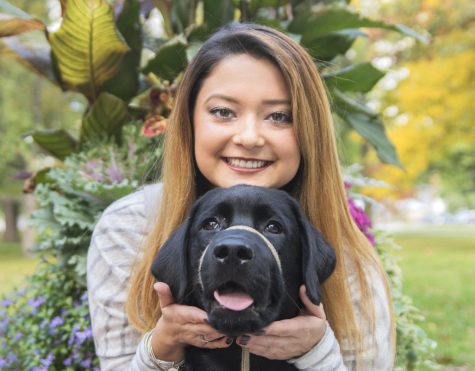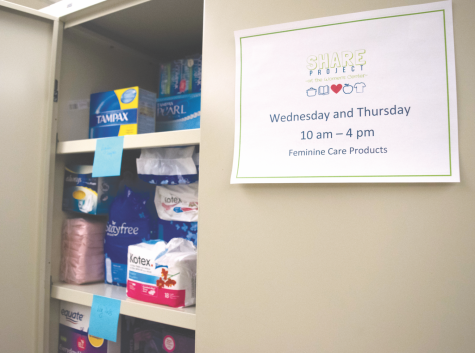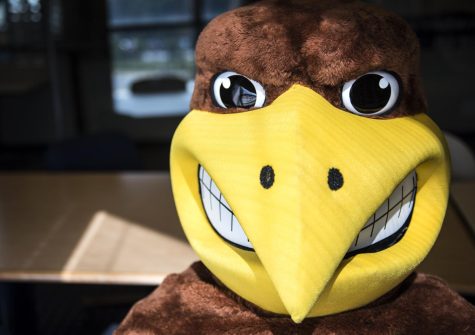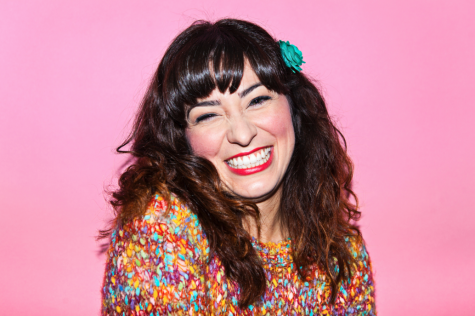Relaxed Reads: The star of my heart
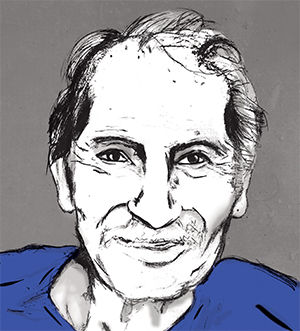
Old Man
November 18, 2014
The lights are dimmed, candles are lit and my family crowds around me, waiting for the cue to start singing. It’s the usual birthday scene — my little sisters giggle at the end of the table as I sit awkwardly waiting for them to finish.
The last, “Happy birthday to you,” hangs in the air and there is a pause. I don’t blow the candles out right away. Instead I silently glance at my dad, and he understands. As if we all just know, my dad, aunt and I all start to quietly finish the tune that my Deda was not there to sing himself:
“May you live one hundred years, may you drink one hundred beers, and get plastered you baaaaaad girl, happy birthday to you.”
My eyes are watering as I blow out the candles, and I can’t help but let a few tears run as I sense my Baba, who was standing behind my chair, flee from the room. My aunt follows her out.
Nikkie, who is naïve even for her age of 11, doesn’t understand what just happened. She is too young.
“Why are you crying? It’s your birthday,” she asks innocently.
“It’s nothing,” I lie, wiping my eyes.
It’s March, and it’s the first family birthday since my Deda passed away in December. The corny tune that I used to roll my eyes at as a child is sorely missed at the kitchen table. Baba walks in the room and I stand up to hug her, but my dad catches me first, pulls me to his chest and whispers in my ear, “I miss him too.”
His voice cracks and I completely break down, tears streaming down my cheeks as he holds on to me. My dad has leaned on me for support just as much as I have leaned on him since his father died. Baba joins us and the three of us just stand in the middle of the kitchen; sniffling is the only sound that breaks the silence.
We started noticing it when I was a junior in high school, but Deda was officially diagnosed with Alzheimer’s in early 2011. It began with funny little stories we would joke about at dinner: “You’ll never guess what Deda did today — he tried breaking into a stranger’s car because he was convinced it was his.” “Deda walked back and forth to the mailbox seven times today because the mail hadn’t come yet, even though it’s a Sunday.” “He kept asking for coffee but it was making him hyper, so I put food coloring in hot water and he drank that all night instead.”
But then the funny stories turned in to 911 calls when he left the grill lit in the garage and almost burned the house down, or when he tore apart his bedroom looking for a shot gun because he was convinced that a stranger was in his empty house.
Deda had multiple heart attacks and strokes while I was growing up, so getting a text from my parents telling me that he was in the hospital after another one wasn’t a big shock to me last October. After his triple-bypass surgery when I was in middle school, I had made Deda pinky promise me that he would live forever. He compromised, promising instead that he would live to see me graduate. We never specified, so in my head that promise was extended until I graduated college, or even grad school for that matter, so I had nothing to worry about.
With that thought process in mind, I brushed off my father’s invites to go to the hospital to take Deda food or just sit with him. I was commuting to Kent and working full time, so I wasn’t home enough to get a real sense of the severity of the situation. Then I heard the horror stories. Deda was having at least one minor stroke a day. One minute he knew who my dad was and the next he thought he was a stranger. He wasn’t eating. He lost control of his bowels.
The Fisher Center for Alzheimer’s Research Foundation says one in every 10 American adults over the age of 65 currently have the disease, which is caused when, “abnormal plaques (comprised of a brain protein called beta amyloid) develop in the spaces between nerve cells and limit the communication between cells, leading to a decrease in cognitive functioning.”
No one knows the definite cause of the disease, and there is currently no cure. Once the process begins, it will continue, over the course of a few months or over more than 20 years, and it will always lead to the same result.
I put off the hospital visit as long as possible.
The image of my deda, who was once strong enough to whirl me above his head in circles, withering away under beige bed sheets will be forever engrained in my memory. His pale face contrasted severely with the purple and brown blotches covering his hands, arms and chest, all caused from medication that thinned his blood — he bruised with a simple touch. He just laid there, his lips, cracked and almost translucent, parted slightly as he slept.
After a few minutes standing at the foot of his bed, I turned to leave. I felt awkward watching him lay there unconscious. A small groan escaped his lips as I was about to walk out, and I turned to see that he had opened his eyes, but only slightly. I tried to talk to him, to say hello. I wanted to tell him everything he was missing while he was stuck in there, but his eyes stayed unfocused, staring blankly into space. He couldn’t hear me, or if he could he didn’t realize who I was.
I wanted to remember him as he was the last time I had seen him, at dinner for Nikkie’s birthday in early October. I hadn’t been around the family much because of my school and work schedule, so Deda was more excited than usual to see me.
“There’s my beautiful little girl!” he exclaimed. “My biggest, little girl,” he would call me.
Deda plopped a chair next to mine so he could ask me about school and work, but somehow, no matter what the question was, he would relate it to his days in the army and playing bass in his tamburitza band. My brother and sisters would get annoyed and try to leave early, but I would always sit and listen to his stories, no matter how many times I had heard them.
When we left his house that night, he said laku noć, and I repeated it back to him like I had been doing since I was a small child, one of the only Croatian words that I knew. I don’t think I ever heard him actually say “good night” in English.
I realized I would never hear Deda utter those words again. I walked to his bedside, gently leaned over, whispered that I loved him for the final time and kissed him on the forehead. I fled from the hospital room, dodging glances as I fought against my heaving chest and the tears gushing down my face.
There was a month period when Deda was moved back and forth from the hospital and a nursing home, but I didn’t go back to see him. I had said my final goodbye, and although some of my family resented me for it at the time, I thought it was justified. Alzheimer’s is, in my opinion, the worst disease a person can suffer from. My grandpa’s body was still hanging on, but my Deda was already gone. If I had went to visit him he wouldn’t have known who I was. It wouldn’t have made him feel better to see me. I would only be hurting myself by seeing him in that deteriorated state again.
The Fisher Center’s website devotes a part of its content to caregivers, saying, “Perhaps one of the greatest costs of Alzheimer’s disease is the physical and emotional toll on family, caregivers and friends.”
There is no “perhaps” about that statement – it is the ultimate cost.
During the calling hours and funeral, my deda’s friends, none of whom I remembered, would recognize me over my siblings.
“You’re the one who went to Italy.” “You’re the one who is going to be a writer.” “Your grandpa would talk about you every time I saw him,” they would say. “I want to shake the hand of the pretty girl whose picture he always showed me in his wallet.”
I was my deda’s first grandchild, and I was always his favorite.
The cake is cut after our brief, tear-stricken intermission, and the night continues on. Before I head back to Kent, my dad takes me aside.
“I have something to show you,” he says, and I follow him into my grandparent’s bedroom. “I found this the other day.”
He reaches for Deda’s wallet and holds it out so that I can see my high school senior picture, but I knew that was there, so it’s no surprise. What my dad really wanted to show me was tucked behind my picture.
It’s a makeshift card with star stickers and stick-figure drawings. There are four stars, a big one with “Deda” written under it, and three little ones with the names of my brother, sister and me. On the opposite side, in faded pencil and with my 3rd grade grammatical error, is a note reading: “Deda, your the star of my heart. XOXO Love, Kelsey.”
He had kept that note in his wallet for twelve years. Dad reached for it to put back on the dresser but I stopped him.
“I want it,” I said quietly.
Dad questioned me. I could tell he was hesitant. He didn’t want me to lose it.
“It’s mine,” I said more adamantly. “I made it for Deda. Now it should go back to me.”
He handed it over and I fought back the urge to start crying again. I put the note in my own wallet, where it will remain.
I drove a few minutes out of the way that night so that I could go by the cemetery. I blew a kiss as I drove by.
“Laku noć, Deda.”
Contact Kelsey at [email protected].












